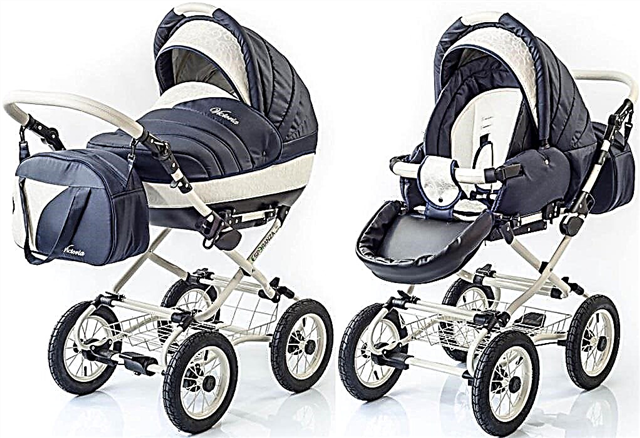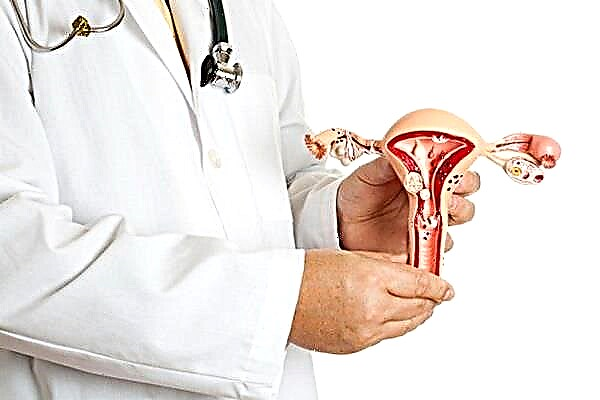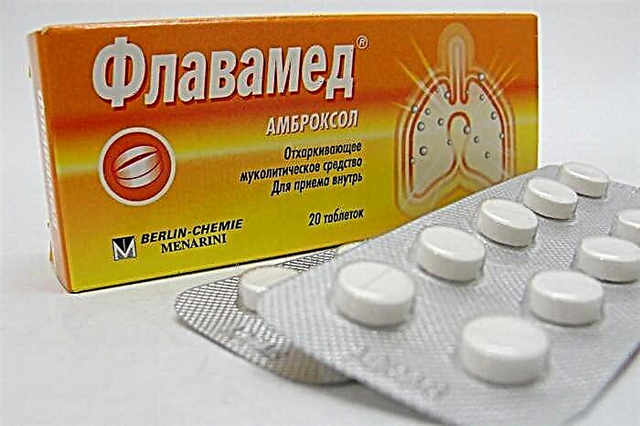Many mothers have a similar situation with a baby on breastfeeding, formula or mixed feeding: the baby spit up after eating well. Up to three months old is a normal phenomenon that is associated with the physiological characteristics of the child's body. But regurgitation can become strong, abundant, the baby will begin to regurgitate excess food or water often, or meals will be accompanied by vomiting with a fountain and the baby's poor health. What to do and how to help the child, every mother should know.

The kid burped
What is regurgitation
Regurgitation is another name for physiological and uncomplicated reflux in a newborn. This phenomenon is common in babies, however, there are cases when the child does not spit up, which is also considered the norm.

Spitting up is natural for newborn babies
The digestive system of infants is immature, so food from the stomach goes back into the esophagus after feeding. In a month-old baby, such processes can occur after each feeding, with age, usually regurgitation begins to pass. Varieties of regurgitation are considered physiological and pathological.
Dynamics:
- The baby may regurgitate curdled milk or mixture immediately after feeding, in some cases - an hour later, as the mother began to feed the baby.
- Most babies spit up at least once a day for up to three months. The baby may also begin to hiccup after belching or excessive swallowing of air.
- The peak of regurgitation is 2-4 months.
- Such phenomena completely disappear at 7-12 months - the child simply outgrows them.
Important! Do not feed your baby with food if he burps. Regurgitation is a natural process, when the baby, on the contrary, has to regurgitate the excess.
If the baby spits up milk, liquid after feeding, this is not a reason to worry and immediately resort to medication. The presence of a curd mass in regurgitation after a time after eating may mean that the enzyme of gastric juice has already managed to prepare food for the next stages of digestion.
Causes of physiological regurgitation
Why does a newborn spit up? The most common cause is the structure of the gastrointestinal tract. However, there are other points that should be noted.
Regurgitation in newborns after feeding causes:
- Too much front milk is a common cause. Mother's milk is "back" - nutritious, fatty and "front" - saturated with glucose and carbohydrates. Do not take too long breaks between feedings - this will increase the amount of "front" milk.
- The milk comes in too quickly. At the very beginning of breastfeeding, mothers may have hyperlactation, as a result of which the breast swells a lot, too much milk comes in, and it flows out of the breast when sucking. In such cases, you should take breaks during feeding so that the baby regurgitates excess air and food.
- Immaturity of the gastric system.
- Colic and tummy pain.

How colic manifests itself
- Improper grip on the nipple when feeding.

Scheme of correct nipple capture
Note! Efforts should be made for the baby to properly latch on to the breast. In addition to the fact that the baby may not eat enough, he will constantly spit up due to the fact that he has swallowed air, and subsequently from painful colic.
- Allergic reaction. Probably, the baby is allergic to the components of the mother's milk, or the mixture is selected incorrectly. Good options are Hipp, Nan, Nutrilon, which contain probiotics, prebiotics, and casein. A nursing mother should change her diet, remove foods containing wheat.
- Development period. When a baby's teeth are teething, there are growth spurts, he can often and a lot spit up.
If you have health problems
If a newborn baby vomits up like a fountain, and similar situations are repeated for several days, a week, the baby may have significant health problems. They can be associated not only with the gastrointestinal tract, but also with a disorder of the nervous system.
Under what pathologies does the child spit up systematically and constantly:
- Hydrocephalus;

Hydrocephalus in a child
- The nervous system is not functioning properly;
- Intracranial pressure detected;
- The presence of a diaphragmatic hernia;
- Galactosemia;
- Phenylketonuria;
- The beginning of infectious processes. Viruses are considered the most common infectious agents, in some cases bacteria and parasites can cause regurgitation. Symptoms of diarrhea, fever, nausea and abdominal pain may additionally appear.
- Reaction to lactose in a child.
Parents should be able to distinguish physiological from pathological regurgitation, and seek qualified help in a timely manner.
Digestive system pathology
Why most often the child spits up - due to the immaturity of the digestive system. However, there are some symptoms that indicate pathology:
- If green bile is found in the regurgitated mass, then the baby has an obstruction in the intestines. You should urgently seek help for scanning a blockage in the gastrointestinal tract and possibly emergency surgery.
- The baby cries during the feeding process, cannot calm down.
- The child has a lack of body weight, he does not add weight well.
- The child does not want to eat, refuses.
- The voice of the crumbs is hoarse, breathing is difficult, the nose is constantly stuffy, chronic pain and infections in the ear, spitting up of a yellow color or mixed with blood indicate severe reflux (GERD).
Note! Cases of regurgitation with GERD cause discomfort to the baby. Sometimes food does not have time to exit, but only enters the esophagus, then it is swallowed back, which causes severe pain. Children on artificial nutrition suffer more from the disease, since breast milk is absorbed more easily and faster, leaving the baby's stomach 2 times faster.
Pyloric stenosis occurs when a newborn is underweight, with frequent vomiting of a fountain. The disease requires surgery.
With a short congenital esophagus, the stomach is above the diaphragm, which can also cause bouts of frequent regurgitation. At the same time, the baby sluggishly sucks at the breast, gets tired very quickly, does not sleep well and gains little weight.
Help with GERD:
- Never overfeed, otherwise the pain will constantly bother the baby.
- Always after feeding, keep it in a column for at least 20-30 minutes, put it in the crib with your head up (you can use a roller).
- For 30 minutes after feedings, do not lay out on the stomach, active games and press on the abdominal region.
- Track the correctness of feedings. With gv - seizure of the nipple, take breaks in the feeding process for 5 minutes and hold the baby upright. With willows - make sure that no air appears in the nipple.
- A nursing mother should adhere to a special diet - remove cow's milk protein from the menu. Gradually introduce new foods and track your baby's reactions to them.
- Those children who are fed on formula can put on poorly in weight, be irritable, whiny, also due to intolerance to cow's milk or soy protein. It is recommended to transfer them to hypoallergenic formulations, after consulting a pediatrician.
- Feed your baby less time, but more often.
- With gv, special milk thickeners are allowed.
Regurgitation or vomiting
It is important for parents to see the difference why and when the baby spits up: due to a natural and permissible process or due to pathology.
What is the difference:
- Regurgitation occurs when food "flows out" without effort, or at the moment of a sharp change in the position of the child. For example, after feeding, the baby was raised and held in a column.
- When vomiting, the child cries, is capricious, the contents of the stomach come out in a fountain, with the help of spasms of the abdominal cell. This is a complex reflex act with an abundance of vomit. This process is preceded by a change in the skin, pallor, sweating and saliva separation.
Additional Information. Regurgitation occurs either immediately after feeding, or after an hour, while milk or water comes out. Vomiting may be repeated, bile is added to the secreted mass, due to which a yellowish tint appears.
How to understand if this is a pathology or a natural process:
- With physiological regurgitation, there is no vomiting;
- With vomiting, too much food comes out 3 or more times a day;
- Regurgitation gradually disappears without unnecessary therapy.
How to prevent physiological regurgitation
The more attention the mother pays to the child, notes when regurgitation occurs, the easier it will be for her to take preventive measures and eliminate negative consequences.
What measures will prevent spitting up in newborns after feeding:
- Feed only when calm. Mom and baby should be at peace. You can put the crumb on the tummy, stroke the back, massage around the navel. It is important that the baby's head does not tilt back during the feeding process, and the nose breathes without difficulty. If the nose is stuffy, then the child will swallow air, and regurgitation will definitely occur.
- Control how the baby picks up the breast: the nipple is captured with part of the areola, while the lower lip is slightly turned out.
- If the baby is bottle-fed, it is beneficial to use anti-colic bottles and nipples, which will prevent air from swallowing. It is important to learn how to properly hold the bottle at an angle of 40 degrees to the baby.
- Do not swaddle or fiddle with the baby immediately after feeding. It is better to wear it in a column or sit it on your knees: hold it with one hand, with the other - easily pat it on the back.

How to carry a baby bollard
- With frequent regurgitation, lay the baby on a barrel. If he regurgitated while lying on his back, it is worth lifting him up and turning him face down.
- If the reason is overfeeding, then reduce the feeding time. In case of malnutrition, the baby will require feeding him some time after feeding.
- Purchase an antireflux blend that contains a locust bean supplement (natural fiber that prevents regurgitation).
Physiological regurgitation is easy to correct and quickly subside. If the baby is cheerful, vigorous, gaining weight well, parents have nothing to worry about.
What to do with frequent regurgitation
If the child often spits up and is capricious, behaves restlessly, you should contact a pediatrician to rule out serious diseases and disorders.
If the baby spits up profusely and often, you can resort to the following simple recommendations:
- Put it on the tummy before feeding - this is how the digestive system quickly enters an active state.
- Experiment with breastfeeding positions. The kid should be at some angle to the horizontal surface. The nose should not rest too tightly on the mother's breast.

Baby feeding positions
- When feeding from a bottle, the teat should have a small hole so that the mixture comes out in drops, and does not flow in a trickle.
- Analyze the correct capture of the nipple with hv. If the problem is in the shape of the nipples, then you can purchase special pads.
- Immediately after eating, do not put the child on a horizontal surface, it is better to hold it vertically so that the air from the stomach comes out.
- After feeding, the baby should be in peace and quiet.
- Avoid overeating.
- Follow a healthy daily routine. The baby should sleep on the tummy or right side.
- Perform special exercises to strengthen the muscles of the digestive tract.
- Mom should monitor her diet, exclude food that causes flatulence: black bread, apples, pastries and legumes.
- Offer dill water and fennel to your child.
How to determine the cause
When a newborn baby regurgitates a small amount of stomach contents in the first months of its life after feeding or an hour after it, it is natural.
To determine the cause of regurgitation, you should pay attention to:
- The amount of regurgitated mass. Ideally - no more than 2 tablespoons of milk or liquid, the presence of a curd mass is permissible;
- Baby behavior during feeding, between feedings. If he is calm, active, sleeps and eats well, then there is nothing to worry about.

Infrequent regurgitation is a norm that does not require medical intervention
The reason that lies in the pathology is always easily recognizable - the baby is capricious, he has other symptoms that bother him and his mother.
Normal functional regurgitation does not harm the baby in any way and does not bother him at all, does not interfere with further well-being. If the baby is healthy, feels good, sociable, develops, eats and gains weight, then everything is absolutely in order, not looking at the fact that occasionally regurgitation appears. Mother's frequent fear that the baby does not have enough food is groundless, there is no need to worry about it at all. The guarantee that the child has enough food is healthy weight gain. Therefore, if you need to reduce the amount of food, you should also not worry.



